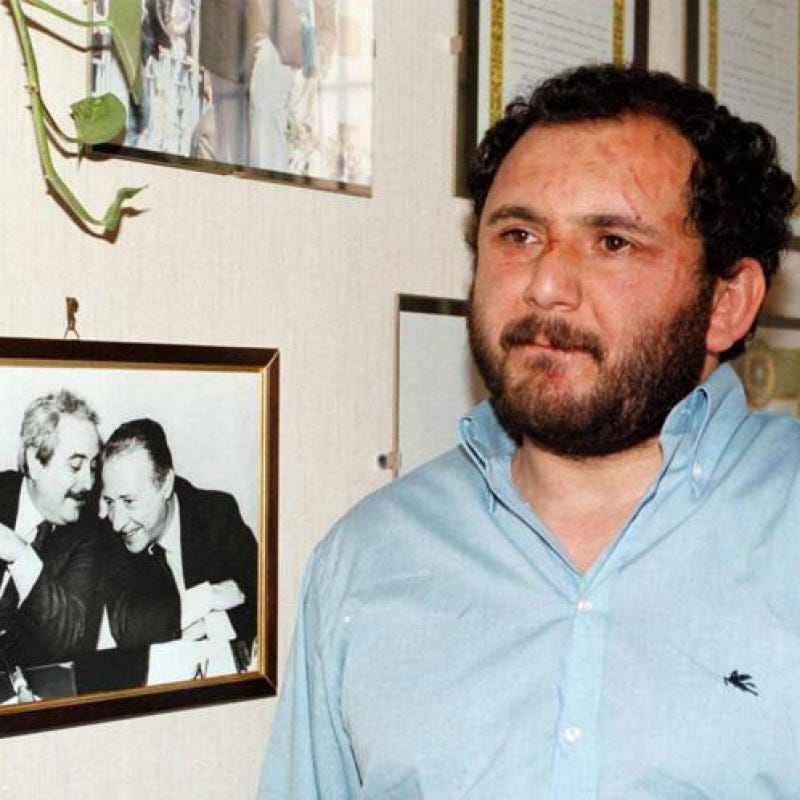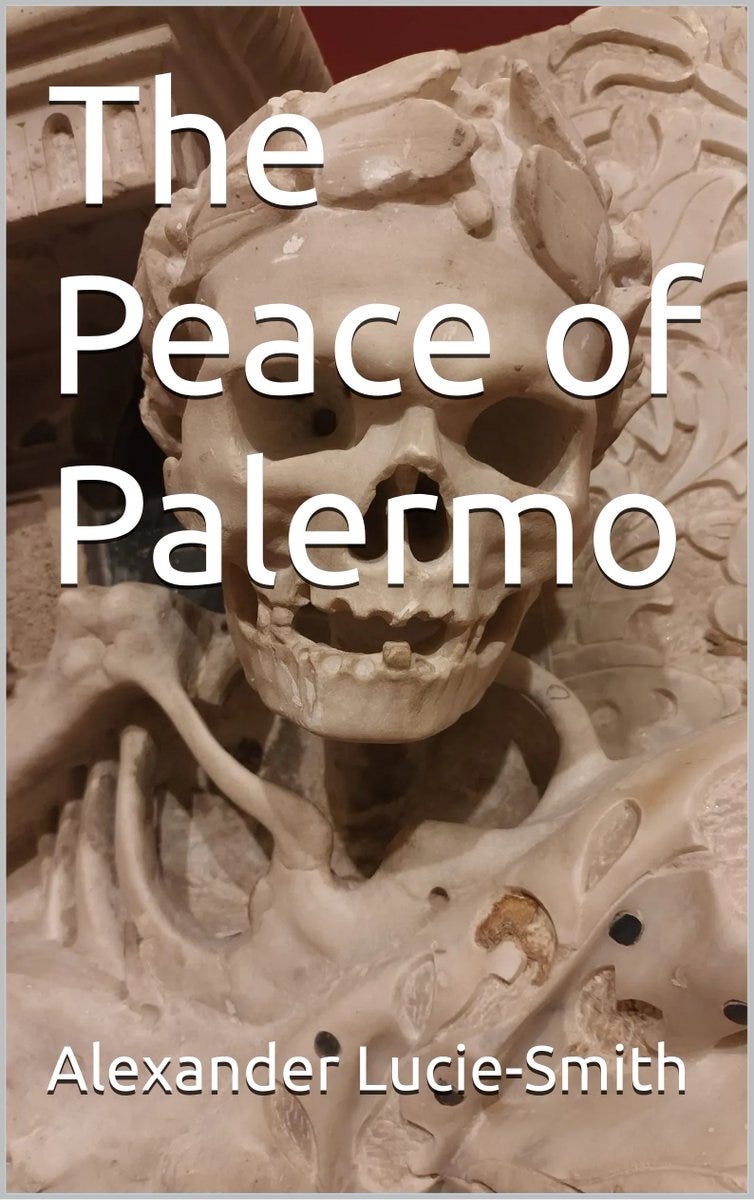
Giovanni Brusca is now a free man.
He was responsible for the massacre of Capaci, the one who activated the remote control that triggered the explosion on May 23, 1992, in which Giovanni Falcone, his wife Francesca Morvillo and their police escort, Vito Schifani, Rocco Dicillo and Antonio Montinaro, died, when driving along the motorway from Palermo airport to the centre of the city. At the end of last month, his 4 years on probation ended. Before that he had served 25 years in prison.
Brusca’s biography is pretty sobering.
Bearded and unkempt, he was known in Mafia circles as ‘the pig’ and ‘the people-slayer.’ His grandfather and great-grandfather, both farmers, were Mafiosi. His father rose to be boss of their local district and Giovanni and his two brothers were also Mafiosi from their youth. The Capaci massacre was his most famous crime, but he was also responsible afterwards for murdering the boss Vincenzo Milazzo and businessman Ignazio Salvo. He himself estimated that he was responsible for between one or two hundred murders.
His downfall came about when the Mafioso Santino Di Matteo was arrested on 4 June 1993, and turned informer. In retaliation, the Mafia kidnapped his 11-year-old son, Giuseppe, on 23 November 1993. The way they did this was chilling. They dressed as policemen and told the boy he was being taken to see his father, who was at that time being kept in police protection on the Italian mainland. The boy was kept in captivity for 779 days, then strangled and his body dissolved in acid. All this was done at the orders of Brusca. It remains one of the worst Mafia crimes ever.
Brusca was involved in the campaign of terror in 1993 against the state during the anti-Mafia crackdown following the murders of Falcone and Borsellino. In the months following Salvatore Riina's arrest in January 1993, a series of bombings by the Corleonesi gang targeted tourist spots on the Italian mainland: the Via dei Georgofili bombing in Florence, Via Palestro in Milan and the Piazza San Giovanni in Laterano and Via San Teodoro in Rome, which left ten people dead and 71 injured as well as severe damage to centres of cultural heritage such as the Uffizi Gallery.
Nevertheless, the net was closing in on Brusca. On 20 May 1996, he was arrested in a small house near Agrigento, where he was dining with his girlfriend, their young son and other family members. The investigators were able to pinpoint their exact location when the noise of a plainclothes officer driving by the house on a motorbike was picked up by officers listening to a call intercepted on Brusca's mobile phone. Once more, one is left amazed that Mafiosi, at least then, used mobiles.
When Brusca was hurried into Palermo police station some ninety minutes after the arrest, dozens of police cheered, honked their horns and embraced each other. As the Brusca emerged from a car, clad in dirty jeans and a rumpled white shirt, some ripped off their ski masks, as if to say they no longer had anything to fear from the Mafia. One reportedly managed to slip past guards and punched Brusca in the face.
In 1997, Brusca was sentenced to twenty-six years in prison for the Falcone bombing. In 1999, Brusca was sentenced to thirty years in prison for Giuseppe di Matteo's murder.
Brusca initially posed as a pentito, but a lot of what he told the authorities was either false or misleading. Later, this seemed to change, and, as a result, his sentence was reduced to twenty-six years in prison. On his first release, he was placed on probation and in a protected witness programme, somewhere far from Sicily, it is assumed. The Italian state now has the considerable charger of protecting Brusca for the rest of his life from the same sort of Mafia vengeance that he once wreaked against the di Matteo family. Nothing is known officially about his girlfriend and son, or the state of their relationship. Brusca is now 68 years old and his son must be pushing forty. Needless to say, some Italians are furious that Brusca was not left to did in prison, and that life did not mean life.
Brusca’s career justifies his nicknames, but it also marks a contrast with modern Mafiosi, who, by and large, exercise influence in gentler and less obtrusive ways, and avoid killing policemen and magistrates and making all out war on the state. Those days, are gone; but the Mafia, having adapted, survives.





